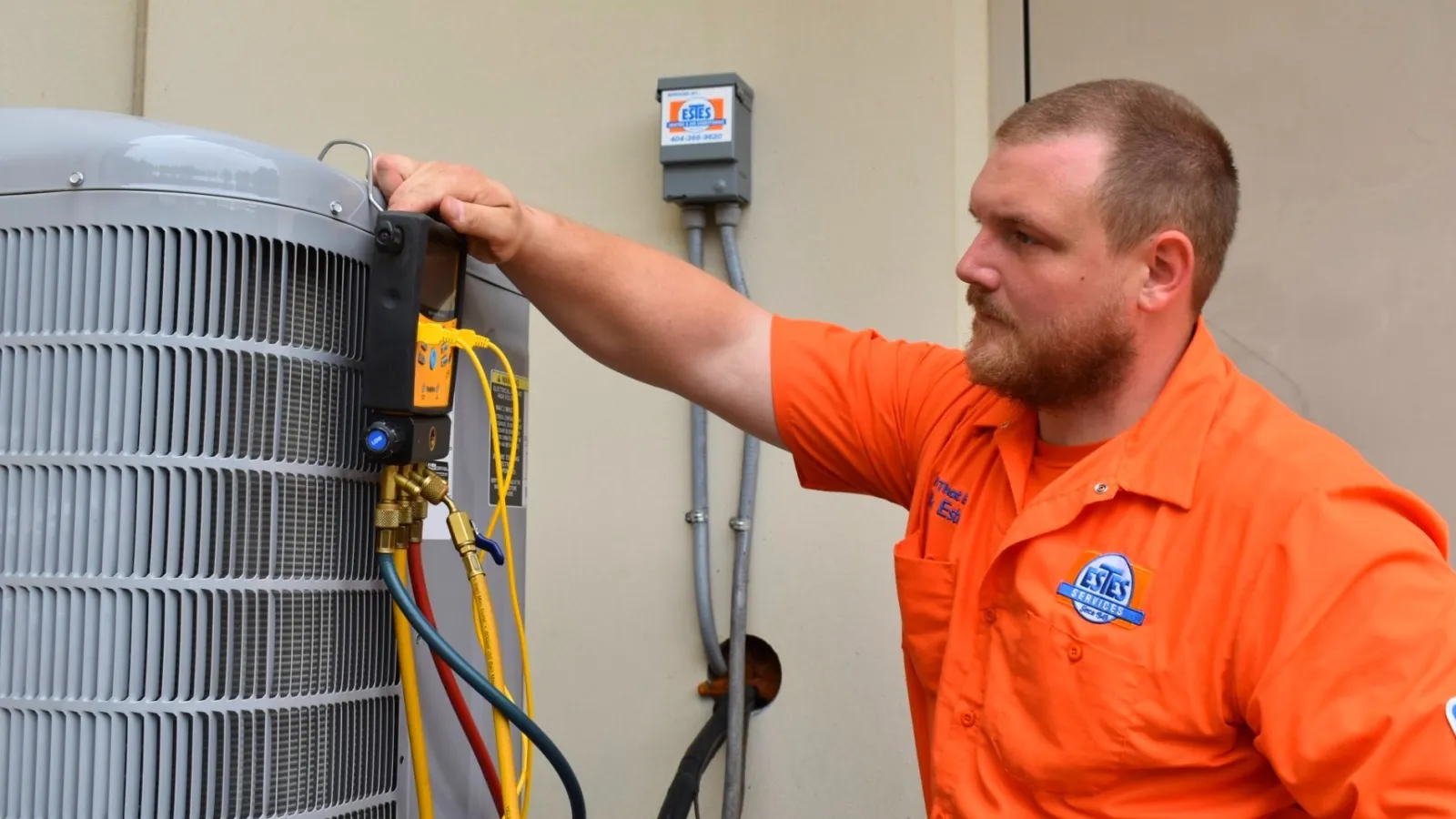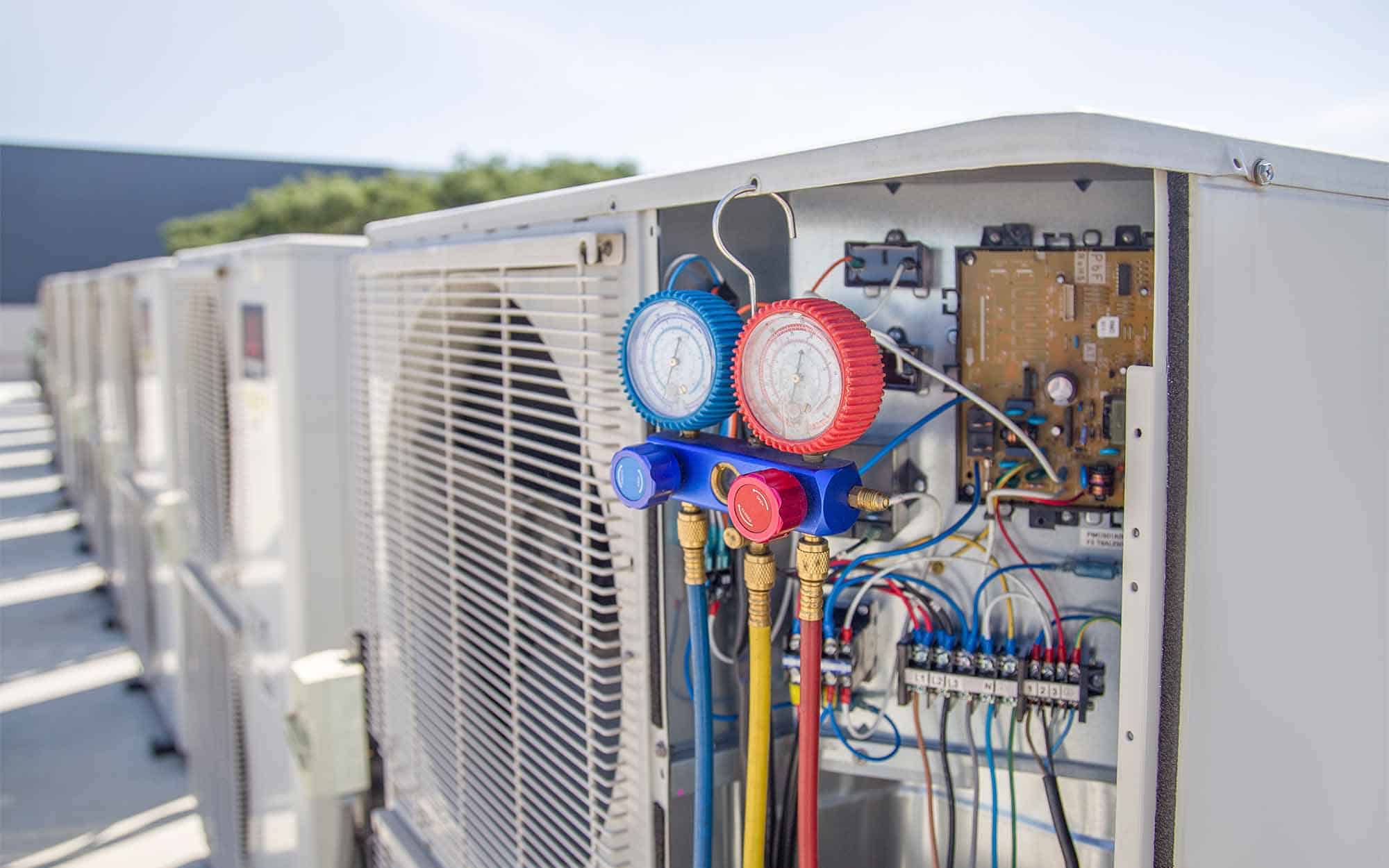A Step-by-Step Walkthrough to heat pump replacement ooltewah tn
A Step-by-Step Walkthrough to heat pump replacement ooltewah tn
Blog Article
Choosing In Between a Heatpump and Heating System: Key Factors To Consider for Your A/c Requirements
When evaluating home heating alternatives for a/c needs, the choice between a heatpump and a heater can be complex. Each system provides distinct advantages tailored to specific climates and power performance goals. Recognizing these distinctions is vital for making an enlightened choice. Secret factors such as setup prices and environmental influence better complicate the option procedure. Which option absolutely straightens with one's comfort and sustainability preferences? The adhering to sections will explore these factors to consider thoroughly.
Comprehending Warmth Pumps: How They Function and Their Advantages
While many home owners take into consideration numerous heating alternatives, comprehending exactly how warm pumps function and their benefits can significantly affect their choice. Heat pumps run by transferring heat instead than generating it. In the winter months, they extract warm from the outdoors air or ground and transfer it inside your home, while in the summer season, they reverse this process, cooling the home by eliminating heat outside. This double capability makes them versatile for year-round climate control.One of the main advantages of heat pumps is their energy performance. They use significantly much less electricity compared to conventional home heating systems, possibly resulting in lower energy costs (heat pump replacement ooltewah tn). Additionally, heatpump have a smaller sized carbon impact, making them an environmentally friendly selection. They additionally require much less upkeep than traditional systems, contributing to lasting price financial savings. Overall, understanding the mechanics and benefits of heatpump can aid homeowners make informed decisions regarding their home heating and cooling down requirements
Checking Out Heaters: Types, Procedure, and Advantages
Furnaces can be found in numerous kinds, including gas, electric, and oil models, each with distinct functional systems. Comprehending these differences is necessary, as they affect effectiveness and heating efficiency. In addition, heating systems use various benefits, such as consistent warmth result and dependability in colder environments.
Sorts of Heaters
Heating systems can vary substantially in design and operation, with heating systems being a popular choice amongst home owners. There are a number of sorts of heaters, each using different gas sources and technologies. Gas heaters are usual, leveraging gas to generate warm efficiently. Electric heaters, on the other hand, make use of electric resistance to create warmth, frequently preferred for their simple installation. Oil heaters, while less usual, work in areas with restricted gas access (ductless mini splits). Additionally, condensing heaters make the most of power efficiency by recycling and catching exhaust gases. Each kind operates via a system of warm exchangers and ductwork to distribute warm air throughout a home. Recognizing the distinctions between these heater kinds is necessary for informed cooling and heating decisions
Advantages of Furnaces
For house owners seeking reliable heat during cold months, the benefits of furnaces are significant. Heating systems offer regular heating, ensuring even temperature levels throughout the home. They are particularly reliable in extreme chilly, often outmatching heatpump in freezing problems. Different kinds, consisting of gas, electrical, and oil furnaces, provide flexibility to satisfy diverse demands and preferences.Furnaces likewise have a tendency to have lower initial installation prices compared to heatpump, making them an extra accessible choice for numerous. Their durable layout adds to a much longer life-span, with lots of units lasting over 15 years with appropriate upkeep. Additionally, contemporary heaters are commonly outfitted with innovative modern technology for boosted performance, which can result in reduced energy costs. On the whole, heating systems remain a reputable choice for effective home heating.

Power Performance: Comparing Heat Pumps and Furnaces
When contrasting power efficiency in between warm pumps and heaters, the Seasonal Power Efficiency Ratio (SEER) plays an important role in determining efficiency. In addition, a functional cost evaluation exposes the long-term monetary ramifications of each system. Understanding these variables can assist home owners in making notified decisions about their home heating options.
Seasonal Power Efficiency Proportion
Energy effectiveness plays a crucial function in the decision-making process between heatpump and furnaces, particularly when considering the Seasonal Power Effectiveness Proportion (SEER) This statistics measures the cooling performance of heatpump over a whole air conditioning period, giving a standard means to assess performance. Higher SEER rankings show better power performance, translating to reduced energy intake and decreased utility expenses. In contrast, heating systems are commonly examined using the Yearly Fuel Usage Effectiveness (AFUE) rating, which mirrors heating efficiency. When comparing these 2 systems, homeowners should prioritize SEER ratings for heat pumps, as they directly effect overall power financial savings and ecological sustainability. An extensive understanding of SEER can significantly influence the lasting contentment and cost-effectiveness of the selected heating and cooling service.
Functional Expense Analysis
Comprehending the operational prices related to heatpump and heaters is crucial for property owners evaluating their alternatives. Warm pumps typically supply greater power effectiveness, transforming electric power into warmth with very little waste. This causes lower month-to-month utility costs, specifically in moderate environments. Conversely, typical furnaces, particularly gas versions, might have reduced ahead of time prices but can sustain higher operational expenses gradually because of fuel prices and effectiveness ratings.Moreover, warmth pumps can function as both home heating and cooling systems, possibly decreasing the need for different heating and cooling units. While initial financial investments for heatpump might be greater, their long-term cost savings in power efficiency can make them a much more cost-efficient choice for lots of houses. Careful analysis of regional power prices is necessary to establish the most effective choice.
Setup Prices: What to Anticipate for every Home Heating System
Installment costs for heating unit can differ substantially between warm pumps and heating systems, affecting home owners' choices. Heatpump normally have higher in advance setup expenses, usually varying from $3,500 to $8,000, relying on the device dimension and intricacy of setup. This includes the outdoor unit, indoor handling system, and required ductwork adjustments. On the other hand, heating systems have a tendency to have lower initial costs, balancing in between $2,500 and $6,000, which can be appealing for budget-conscious property owners. However, setup expenditures can enhance if considerable ductwork is required.Moreover, the selection of gas kind for heating systems-- gas, propane, or electrical-- can also impact installation expenses. While heat pumps offer power effectiveness, their initial financial investment may deter some customers. Eventually, assessing installation expenses alongside lasting savings and performance will aid home owners in making notified choices regarding their home heating systems.
Climate Considerations: Which System Executes Better in Your Location
How do environment problems influence the performance of heating unit? The efficiency of heat pumps check out here and heating systems can differ substantially depending upon the neighborhood environment. In moderate environments, heatpump succeed by efficiently moving warmth from the outside air, making them an energy-saving choice. Their efficiency decreases in extremely cold temperatures, where they may have a hard time to extract adequate warmth. On the other hand, heaters, particularly gas designs, provide constant and reliable warm regardless of exterior problems, making them better in cooler regions.In locations that experience milder wintertimes, warm pumps can run efficiently year-round, supplying both home heating and cooling. In contrast, areas with severe winters often take advantage of the toughness of heaters. Inevitably, understanding the regional climate is important when making a decision in between a heatpump and a furnace, as it directly impacts their operational performance and overall efficiency.
Maintenance Needs: Long-Term Care for Heat Pumps vs. Furnaces
While both heat pumps and furnaces call for normal upkeep to assure peak performance, their specific needs and care routines differ significantly. Furnaces typically need much less frequent attention, with annual assessments sufficing to inspect for gas leakages, clean filters, and assess overall performance. Their less complex design often permits simple repairs.In contrast, heat pumps require semiannual upkeep due to their twin duty in heating and cooling. This includes cleansing coils, inspecting cooling important site agent degrees, and making sure that both the exterior and indoor systems work at their ideal. In addition, warm pump maintenance typically involves even more elaborate parts, making professional servicing essential.Neglecting upkeep can lead to reduced performance and enhanced power expenses for both systems. Eventually, house owners need to consider these long-lasting treatment needs when selecting between a heatpump and a heating system, as aggressive upkeep can expand the life expectancy and efficiency of either system substantially.
Ecological Influence: Choosing a Sustainable Heating Option
The environmental effect of heating systems is an essential assessment for home owners looking for sustainable options. Heatpump are generally a lot more energy-efficient than typical heating systems, as they move warmth rather than generate it, significantly minimizing carbon exhausts. By using renewable resource resources, such as geothermal or air-source heatpump, homeowners can further lessen their ecological footprint.On the other hand, all-natural gas heating systems release greenhouse gases and contribute to air contamination, though they often supply higher warm output. Nevertheless, developments in technology have resulted in the development of high-efficiency furnaces that lessen emissions.Ultimately, selecting a heater includes weighing efficiency versus environmental impact. Home owners are motivated to review neighborhood energy resources and rewards for eco-friendly systems, making certain an option that straightens with both personal convenience and environmental responsibility. The decision influences not only prompt comfort yet also long-lasting sustainability and ecological health and wellness.
Frequently Asked Concerns
How Much Time Do Warm Pumps and Furnaces Usually Last?
The life-span of warm pumps commonly ranges from 15 to twenty years, while heating systems can last between 15 to 30 years. Normal maintenance considerably influences their long life and performance in giving heating remedies.
Can I Utilize a Warmth Pump in Extremely Cold Climates?
Heatpump can run in exceptionally cold climates, however their performance decreases as temperatures decline. In such problems, extra heating sources may be essential to preserve comfy indoor temperature levels and guarantee peak performance.

What Is the Noise Level of Heat Pumps Versus Furnaces?
The noise levels of heatpump and heaters differ significantly. Usually, heatpump operate more quietly than traditional furnaces, making them better for those conscious sound, while heaters may create louder operational sounds throughout heating cycles.
Are Warm Pumps Suitable for Both Cooling And Heating?
Heatpump are certainly ideal for both home heating and cooling (heat pump installation ooltewah tn). They work by transferring warmth, supplying reliable temperature level control year-round, making them a versatile choice for homeowners looking for an all-in-one a/c service
What Dimension Heater Do I Required for My Home?
Figuring page out the suitable dimension home heating system for a home requires evaluating aspects such as square footage, insulation quality, local environment, and the home's format. Consulting a specialist can assure an exact analysis and perfect comfort. Heat pumps normally provide greater energy performance, transforming electric energy right into warmth with minimal waste. In moderate environments, warmth pumps excel by effectively moving heat from the outside air, making them an energy-saving choice. Alternatively, heating systems, specifically gas designs, provide constant and reliable warmth regardless of outside problems, making them better in cooler regions.In locations that experience milder wintertimes, heat pumps can run effectively year-round, supplying both home heating and air conditioning. Warmth pumps are generally extra energy-efficient than standard heating systems, as they move heat rather than generate it, significantly decreasing carbon discharges. By utilizing renewable power resources, such as geothermal or air-source warmth pumps, homeowners can further reduce their environmental footprint.On the various other hand, natural gas heaters give off greenhouse gases and add to air contamination, though they commonly supply greater warm outcome.
Report this page